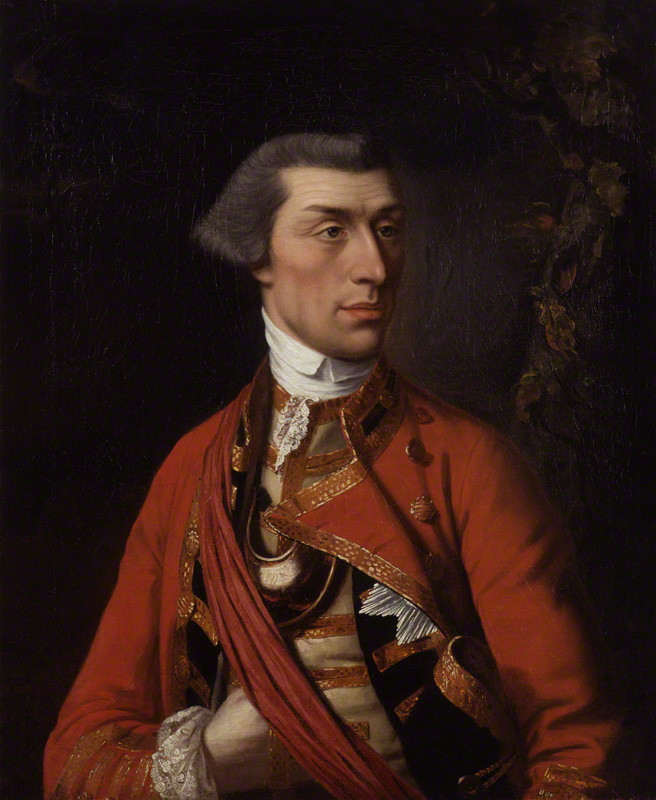
Eyre Coote (East India Company officer)
Lieutenant-General Sir Eyre Coote, KB (c. 1726 – 28 April 1783) was an Anglo-Irish military officer and politician who sat in the House of Commons from 1768 to 1780. He is best known for his many years of service with the British Army in India. His victory at the Battle of Wandiwash is considered a decisive turning point in the struggle for control in India between Britain and France. He was known by his sepoy troops as Coote Bahadur (Coote the Brave).[1]
For other people named Eyre Coote, see Eyre Coote (disambiguation).
Eyre Coote
Joshua Mauger
Thomas Calcraft
Joseph Gulston
William Morton Pitt
1726
Kilmallock, County Limerick, Ireland
28 April 1783 (aged 56–57)
Madras, Madras Presidency (now India)
St Andrew's Church, Rockbourne, Hampshire England
Coote the Brave
1745–1783
Lieutenant general
Early life[edit]
A member of the Coote family headed by the Earl of Mountrath, he was born in Kilmallock, near Limerick, Ireland, the son of the Reverend Chidley Coote and Jane Evans, daughter of George Evans, and sister of George Evans, 1st Baron Carbery.[2] He entered the 27th Regiment of Foot. He first saw active service in the Jacobite rising of 1745, and later obtained a captaincy in the 39th Regiment, the first regular British regiment to serve in India.[3]
Member of Parliament[edit]
In 1762, he returned to Britain, receiving a jewelled sword of honour from the company and other rewards for his great services.[3] In 1771 he was made a Knight of the Order of the Bath. In 1768, he was elected M.P. for the borough of Leicester in the Parliament of Great Britain, before transferring to Poole, nearer his Hampshire estates, in 1774. He relinquished the seat in 1780 after his last return to India.[5]